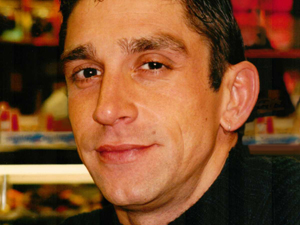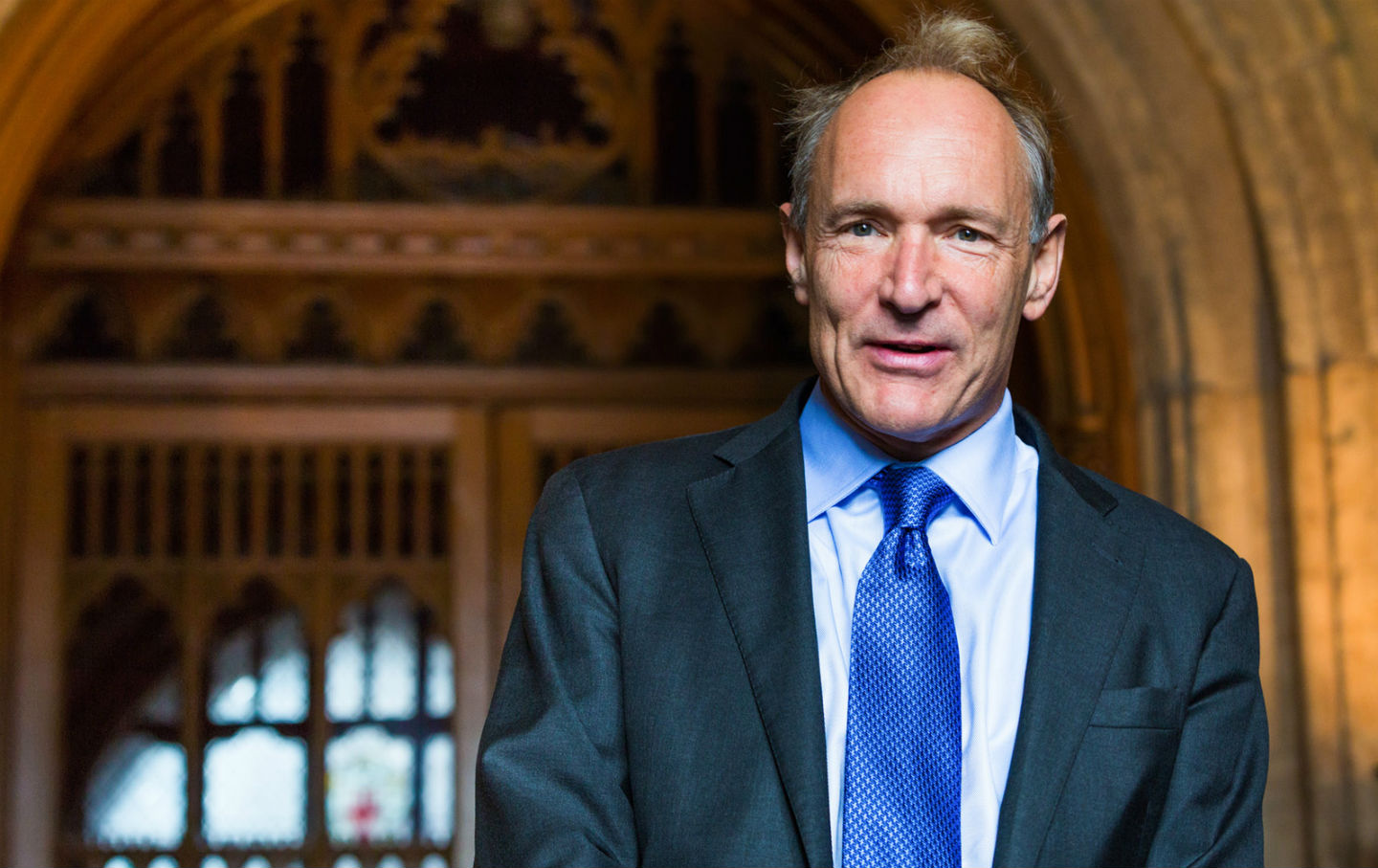
Last Night in Havana Last Night in Havana
Editor’s Note: Nation contributor Dan Wakefield alerted us to our role in helping to launch the poetry career of Richard Blanco, selected by the White House as the 2013 inaugural poet. Dan writes: “When I went to teach at Florida International University in the spring of 1994, I went to a student reading and was especially impressed by one of the poets, a young man named Richard Blanco. I asked if he would give me copies of the poems he read that night, and I picked out three of them I thought were worthy of publication and suggested I submit them to The Nation, where I have been a long-time contributor. Rick said none of his work had been published yet, and was happy for me to send the poems to Grace Shulman, the poetry editor. To my delight and to Rick’s, Shulman selected his poem “Last Night in Havana,” and eventually published it in The Nation (March 31, 1997). So The Nation was the first periodical to accept for publication the work of our new inaugural poet. (To thank me, Rick gave me my first guided tour of Little Havana, Miami’s legendary Cuban neighborhood.)” The palms sink willingly into the saffron ground. All I can map now is the marble veins of static rivers, the island coastline retreated like a hem from the sargasso patches of Caribbean. I think of you primo hermano, huddled on the edge of an Almendares curb last night your Greco shadow spilled over the street, and over the tracks stapled to the weeds below your bedroom window. Shawled in cobwebs of wind, we slapped at unreachable mosquitos as Havana’s tenements collapsed around us, enclosed us in yellow like the pages of old books or the stucco walls of a hollow chapel. You confessed you live with one foot ankled in the sand of a revolution, one Viking sole on the beach testing an unparted sea for the stag tide, the gulf wind, a legible puzzle of stars, the perfect moon that will increase your chances through the straits to my door, blistered, salted, but alive, to cry—Llegué hermano, llegué! And silence the sweep of labor trains in your window, the creak of your father’s wheelchair in the hall searching for a bottle of pills he will find empty, the slam of your eyelids forcing sleep. The bus tires are ready, bound with piano wire, and the sail will be complete with a few more scraps of linen Tia Delia will stitch together after midnights when the neighbors are asleep. Last night in Havana, your words bounced from your knees bent against your face and drowned with the lees in an empty bottle of bootleg wine you clutched around the neck and will keep to store fresh water.
Mar 31, 1997 / Books & the Arts / Richard Blanco
TNR: The Long Goodbye TNR: The Long Goodbye
A once-liberal magazine finally decides it hates them.
Jan 27, 1997 / Eric Alterman
The End of History The End of History
In 1996, Gore Vidal narrated his debacle defending the programs he wrote for the History Channel, which dealt with on the imperial aspects latent in the American presidency, to a p...
Sep 30, 1996 / Gore Vidal

Mythologizing the Bomb Mythologizing the Bomb
The beauty of the atomic scientists' calculations hid from them the truly Faustian contract they scratched their names to.
Aug 14, 1995 / From the Archive / E.L. Doctorow
In Europe, Hope Amid the Ruins In Europe, Hope Amid the Ruins
"Bliss was it in that dawn to be alive,/But to be young was very heaven!" The words of Wordsworth do not fully fit, because with so much bloodshed, the stench of corpses, and ske...
Apr 27, 1995 / Feature / Daniel Singer
The Stench of Corruption The Stench of Corruption
A righteous wind is sweeping across Europe and corruption is being exposed all over.
Dec 15, 1994 / Feature / Daniel Singer
ADK ADK
In the late 1960s in England when I worked for The New Statesman I used to travel down to the printers at High Wycombe each Wednesday in the company of the editor, Paul Johnson, mad though not as mad as he is now. On the train Johnson would ruminate on issues and persons of the hour (“Tony Richardson, a homosexual sadist of the worst sort”). Relief from these explosive allocutions would come in the form of Andrew Kopkind’s weekly dispatches from Washington, telexed overnight and waiting for us at the printer. It would be hard to overestimate the impact of these pieces. They were collected in a Penguin edition published in 1969 called America: The Mixed Curse and in the days after Andrew died I leafed through my old copy. Andrew worked hard at his opening lines and after a quarter of a century I can still remember many of them: “To be white and a radical in America this summer is to see horror and feel impotence” (1967); “In America, the cult of personality is the faith of the outcast, the politics of salvation” (1967, on R.F.K.); “History is full of last chances, lost opportunities and unperceived possibilities. The history of political liberalism in America for the past twenty years is composed of very little else” (1968, on the McCarthy campaign); “There is a cord which is strung from the winter of 1948 until now, and along it hang the politics, the events, and the personalities of one long, cold season of history” (1968); “I used to work for Time; or was it sell? A Lucemployee is always a salesman first, and then a journalist of whatever degree” (1968). There was polish and wit in such prose, but the rhythms had a tempo that stretched beyond elegance or aphorism: The Movement is dead; the Revolution is unborn. The streets are bloody and ablaze, but it is difficult to see why, and impossible to know for what end. Government on every level is ineffectual, helpless to act either in the short-term or the long. The force of Army and police seems not to suppress violence, but incite it. Mediators have no space to work; they command neither resources nor respect, and their rhetoric is discredited in all councils, by all classes. The old words are meaningless, the old explanations irrelevant, the old remedies useless. It is the worst of times. It is the best of times. The wretched of this American earth are together as they have never been before, in motion if not in movement. No march, no sit-in, no boycott ever touched so many. The social cloth which binds and suffocates them is tearing at its seamiest places. The subtle methods of cooptation work no better to keep it intact than the brutal methods of repression; if it is any comfort, liberalism proves hardly more effective than fascism. Above all, there is a sense that the continuity of an age has been cut, that we have arrived at an infrequent fulcrum of history, and that what comes now will be vastly different from what went before. This was Andrew, writing in August of 1967 in an essay on Martin Luther King Jr. for The New York Review of Books. I had a line about Andrew in the wake of his death that many people didn’t like, to the effect that “If it ever needed it, he gave extremism a good name.” I suppose the noun makes people nervous. But what extremism meant here was following a simple logic: Martin Luther King once had the ability to talk to people, the power to change them by evoking images of revolution. But the duty of a revolutionary is to make revolutions (say those who have done it), and King made none. By his own admission, things are worse in the US today—for white people and black—than when he began the bus boycott in Montgomery eleven years ago.… King assumed that the political economy of America was able to allow the integration of the mass of poor Negroes into the mainstream society, with only minor pushing and shoving. White liberals would be the thin edge of the wedge, the Democratic Party the effective agency of change.… It worked well for a while. Southern feudalism began to disintegrate.… But there were stonier walls behind the first defences of segregation. A society infused with racism would not easily discard the arrangements by which it confers status. Unlike anachronistic feudalism in the deep South, the national system of industrial and technological capitalism was practically invulnerable. Marches and freedom songs were unavailing. The “power structures” of the Mississippi Delta may have trembled when they heard “Ain’t Gonna Let Nobody Turn Me ’Round,” but the one in Cook County was unmoved. It had better weapons: an anti-poverty programme, an Uncle Tom congressman, available jobs, and huge stores of tolerance. When that failed, as it did, there were armies of police and soldiers prepared for final solutions. King may have first realized his predicament as he sat, silently, in the caucus of the Mississippi Freedom Democrats in Atlantic City three years ago this month. The National Democratic Party in which he had placed his faith for change denied their petition for representation; it had no intention of altering the balance of power between blacks and whites in Mississippi. Worst of all, the liberal vanguard of that Party, Hubert Humphrey and Walter Reuther, were wielding the heaviest hatchets, to protect their own skins and secure their own interests. In a 1973 essay excerpted here in The Nation last week, Andrew talked about the role of the Vietnamese in changing and deepening his political perspective. True enough. But the rejection of the Mississippi Freedom Democrats was a historic moment he came back to again and again, in our conversations down the years. That moment, which he could evoke twenty years later as though the scene were unfolding before his eyes, was pivotal. * * * The tall fellow, rather Ivy-Leaguish in appearance at that time, who finally came into The New Statesman in perhaps 1969 was somewhat diffident, in contrast with the enormously assured prose I had been reading for a couple of years. At that time I was sharing an apartment with Perry Anderson, editor of New Left Review, and since Perry was away teaching in Brazil, Andrew came to stay. In those days we European leftists were pretty impressed by our radical American visitors. For one thing, they were—so to speak—coming from the front lines, of urban riot and civic insurrection. For another, they traveled confidently from one end of the world to the other, spending—to our provincial eyes—prodigious sums. For their part our American friends thought us inheritors of a European socialist—Marxist—tradition that might at a moment’s notice catch them at a disadvantage. They might have Dylan, but we had Gramsci, Sartre and the rest of the gang. Andrew was well educated, but he wore it all pretty lightly. I don’t often recall him with his nose in a book and as often as not it was an allusion, a half-quote or a glancing pastiche that made apparent the reading he must have done at some point in the past. He did, on the other hand, like current movie and music culture a lot. Back at that time, after a stay of a couple of weeks, he left me by way of a thank-you two records—the Temptations and Country Joe and the Fish. He also left me the advice that things might be getting rough in the States, and it might be necessary to communicate under some conditions of security. We figured out a code whose key, I remember, was “ce n’est qu’un début,” which was the first half of the Paris ’68 slogan, “Ce n’est qu’un début, continuons le combat." It’s only a start. Let’s get on with the battle. * * * I became the European correspondent of Mayday, later Hard Times, the newsletter he started with Jim Ridgeway and Robert Sherrill. After two or three years it was over. Andrew was on a farm in southern Vermont, had come out. He and his friend John Scagliotti came through London, not long before I decided to go to the States, in 1972. The next time I saw him was in Miami for the Republican National Convention, no longer Ivy-Leaguish but not diffident either. I stayed a lot at the farm, and we were under the same editorial roof often enough in the 1970s, at The Village Voice and then finally from the early 1980s at The Nation. Every now and again I’ll bump into someone who says, “That piece you wrote in 1972” (or some such distant year), “it was the best thing you ever did!” It’s never very uplifting to hear this sort of thing, as twenty years of work are waved aside. Andrew may have felt that about his sixties writings. They did command their time, and formally speaking they had a poise to them that was almost dissonant with the disorder they were describing. Writing—if you are a writer, which many people think they are when they’re not—is a long-distance game. Andrew survived his sixties classicism and made the shift, formally as well as substantively, to new times and a more relaxed style. An important part of this transition was his own shift from observer to participant. Of course, in the sixties, he was a participant in the sense that he sympathized passionately with the insurgents he was writing about. But autobiography and radical project still lay athwart each other, not least at the level of sexual sympathies. His writing in the sixties had—or so I feel now looking back at it—the clarity of those days in Los Angeles after rain, when depth of field is obliterated. We talked a lot, mostly on the phone. Every now and again we’d go on the road and do a joint piece for The Nation, around the presidential campaigns. The trips were fun. It was in Andrew and John’s company that I saw Bill and Hillary for the first time, at a barbecue outside Manchester, New Hampshire. The Gennifer Flowers affair was exploding, Bill’s thick frat-boy face was flushed and the pig was, so it turned out, completely raw. Writing with Andrew was harder. Our sentences got in the way of each other, and in the end we’d settle for separate sections of the piece even though our political thoughts were in sync, as they had been in most respects for the duration of our friendship. * * * He was ill for a long time. Later on the Sunday he died I spent half an hour trying to find the passage by Proust in The Guermantes Way in the chapter on the death of the narrator’s grandmother: But it is rare for these grave illnesses…not to take up residence in a sick person a long time before killing him, during which period they hasten, like a “sociable” neighbor or tenant, to make themselves known to him. A terrible acquaintance, not so much for the sufferings that it causes as for the strange novelty of the terminal restrictions which it imposes upon life. We see ourselves dying, in these cases, not at the actual moment of death but months, sometimes years before, when death has hideously come to dwell in us. We make the acquaintance of the Stranger whom we hear coming and going in our brain. True, we do not know him by sight, but from the sounds we hear him regularly make we can form an idea of his habits. Is he a malefactor? One morning we can no longer hear him. He has gone. Ah! if only it were for ever! In the evening he has returned. What are his plans? The consultant, put to the question, like an adored mistress, replies with avowals that one day are believed, another day questioned. Or rather it is not the mistress’s role but that of interrogated servants that the doctor plays. They are only third parties. The person whom we press for an answer, whom we suspect of being about to play us false, is Life itself, and although we feel it to be no longer the same, we believe in it still, or at least remain undecided until the day on which it finally abandons us. Andrew must have had a premonition. The day before he died he called me to dictate the dedication to the collection. We discussed the suggested subtitle, “Dispatches and Divertissements of a Radical Journalist, 1965–1994." He said he had his doubts and wanted to think about it. Later there was a message on my machine. He changed Divertissements to Diversions, and apologized for sounding a bit stupid. “Still,” he said laconically before he rang off, “stupid is as stupid does.” Next morning, though he had sounded perkier on the phone to John, he was suddenly gone with an abruptness that reminded me of nothing more than the way he’d end a phone conversation. He often found it hard to get out of a chat and would suddenly say goodbye, and hang up.
Nov 21, 1994 / Books & the Arts / Alexander Cockburn
Why Say No? Why Say No?
Alex on the pathetic handshake between Rabin and Arafat.
Oct 4, 1994 / Beat the Devil / Alexander Cockburn

A Socialism of the Skin A Socialism of the Skin
Our suffering teaches us solidarity; or it should.
Jul 4, 1994 / Reclaiming Stonewall / Tony Kushner

The Internet Will Change the Way We Relate to One Another The Internet Will Change the Way We Relate to One Another
“Given the stakes and the power of the interests now seeking to shape and profit from this new technology, the end result may not be a happy one for the average citizen-user.”
Jul 12, 1993 / 150th Anniversary / Richard Kreitner
